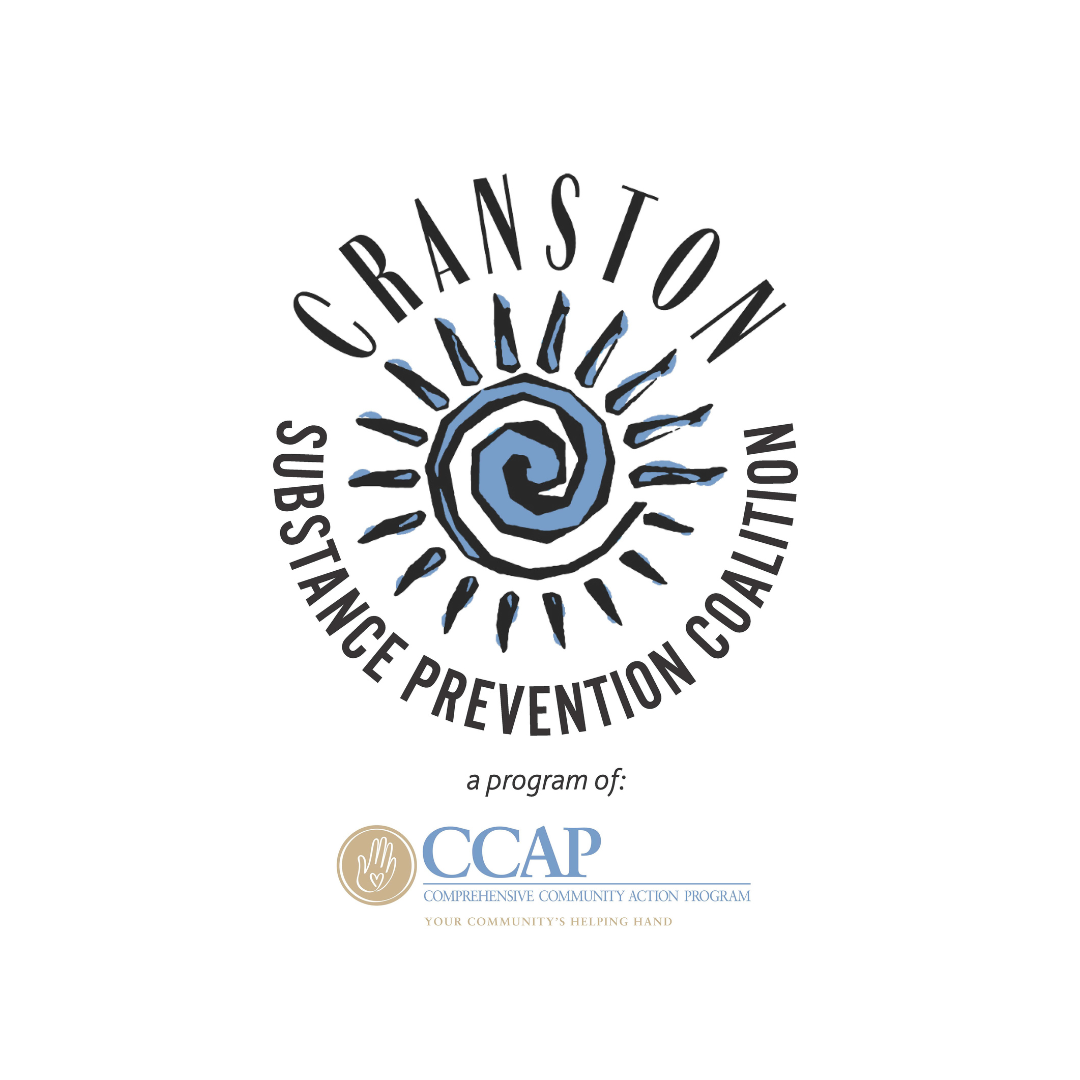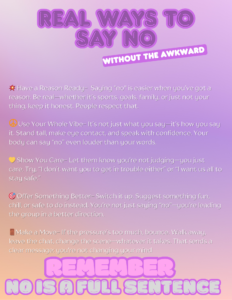Resources
Substance Use Resources for Teens & Parents
Cranston Substance Prevention Coalition can provide you with information on a range of substance use issues as well as access to important resources. Struggling against substance abuse is difficult, but doing so alone and without the proper information and resources is nearly impossible. At Cranston Substance Prevention Coalition, we get you the help you need to help you overcome substance use.
-
Increased Risk of Alcohol Dependence: Youth who begin drinking before age 15 are six times more likely to develop alcohol dependence or abuse later in life compared to those who start at or after age 21. MADD
-
Consumption Patterns: Adolescents tend to consume higher quantities of alcohol per occasion compared to adults, even though they may drink less frequently. PMC
-
Impact on Brain Development: Drinking during adolescence can disrupt brain maturation, leading to long-term cognitive impairments, particularly in memory and learning. Teen Vogue
-
Binge Drinking Prevalence: Over 90% of the alcohol consumed by young people is in the form of binge drinking. McLean Hospital
-
Academic Consequences: Underage drinking is associated with academic problems, including missing class and falling behind in schoolwork. NIAAA
-
Parental Awareness: While 1 in 6 teens engages in binge drinking, only 1 in 100 parents believe their teen binge drinks. OHCNWA
-
Proportion of Alcohol Consumption: Individuals aged 12 to 20 account for 11% of all alcohol consumed in the United States. Talk It Out
-
Exposure to Alcohol Advertisements: Youths aged 11–14 are exposed to an average of three alcohol advertisements per day, totaling approximately 1,000 ads annually. RAND Corporation
-
Influence of Peer Pressure: Peer pressure significantly influences adolescent drinking behaviors, making it challenging for teens to resist alcohol consumption. Alcohol.org
-
Prevalence of Underage Drinking in Rhode Island:
-
Current Alcohol Use: Approximately 18% of Rhode Island high school students reported consuming alcohol in the past month.
-
Binge Drinking: About 9% of high school students in Rhode Island admitted to binge drinking during the same period.
Perception of Harm:
-
Many teens do not perceive alcohol as harmful, which may contribute to higher rates of experimentation and use.
Consequences of Underage Drinking:
-
Academic Issues: Alcohol use among teens is associated with academic problems, including lower grades and higher absenteeism.
-
Health Risks: Underage drinking can lead to various health issues, such as potential interference with normal brain development and negative effects on information processing.
Sources of Alcohol:
-
Teens often obtain alcohol from friends, which significantly increases the likelihood of binge drinking. PubMed
Parental Awareness and Influence:
-
Open communication between parents and teens about the risks of alcohol can reduce the likelihood of underage drinking.
Rhode Island Laws on Underage Drinking:
-
Possession and Consumption: Individuals under 21 are prohibited from possessing or consuming alcohol, with no exceptions. NIAAA Alcohol Policy
-
Social Host Law: It is illegal for adults to provide alcohol or a place to consume alcohol to anyone under 21. Adults can be held responsible even if they are unaware that underage drinking is occurring on their property. eastgreenwichnews.com
Understanding these statistics and laws is crucial for addressing the issue of underage drinking in Rhode Island and implementing effective prevention strategies.
-
-
Health Risks of E-Cigarettes and Vaping Devices:
-
Impact on Brain, Heart, and Lungs: E-cigarettes are not safe for youth, young adults, pregnant women, or adults who do not currently use tobacco products. Mass.gov
-
Cancer Risk: Recent research indicates that people who use both cigarettes and e-cigarettes have a higher risk of getting lung cancer than people who only use cigarettes. Cancer Info & Resources
-
Adolescent Brain and Lung Development: Nicotine exposure during adolescence can harm the developing brain, affecting areas that control attention, learning, mood, and impulse control. CDC
Regulatory Status and Marketing:
-
FDA Approval: As of now, no e-cigarette product has been approved by the U.S. Food and Drug Administration (FDA) as a smoking cessation aid. Truth Initiative
-
Marketing Practices: The FDA has expressed concerns about e-cigarette companies marketing their products with claims of being safer alternatives to smoking without FDA approval. GQ
-
Regulatory Oversight: The lack of comprehensive federal oversight makes it challenging to assess the safety of specific vaping products.
Nicotine Content and Youth Usage:
-
Nicotine Presence: Most e-cigarettes contain nicotine, a highly addictive substance. CDC
-
Transition to Cigarettes: Teens using e-cigarettes are at a greater risk for smoking cigarettes in the future. National Institute on Drug Abuse
-
Nicotine Concentration in Juul Pods: One Juul pod contains the same amount of nicotine as one to two packs of cigarettes. Wikipedia
-
Youth Awareness of Nicotine Content: A significant number of youth are unaware of the nicotine content in e-cigarettes, often underestimating their exposure.
Youth Attraction and Access:
-
Flavor Appeal: Youth report that e-cigarette flavors are a primary reason for trying vaping.
-
Online Purchases: Despite regulations, youth can access “e-juice” online, as some websites do not consistently enforce age verification measures.
-
-
Youth Access and Rhode Island Laws:
-
Online Purchases: Youth can order “e-juice” on the internet, and some websites may not adequately verify age.
-
Legal Age for Purchase: In Rhode Island, the sale or distribution of electronic nicotine delivery systems to persons under age 21 is prohibited. Public Health Law Center+1Rhode Island KIDS COUNT+1
-
Flavored E-Cigarette Ban: As of January 1, 2025, Rhode Island implemented a ban on the sale of flavored e-cigarettes, excluding menthol and tobacco flavors, to reduce youth vaping rates. Rhode Island PBS+1Rhode Island Current+1
-
Use on School Property: It is illegal for anyone to use or possess any tobacco products, including e-cigarettes, on K-12 school properties, both indoors and outdoors, in Rhode Island. Department of Health
Rhode Island Youth Vaping Statistics:
-
High School Students: In 2023, 17% of Rhode Island high school students reported currently using electronic vapor products, a decrease from 32% in 2019. Rhode Island KIDS COUNT
-
Flavored Product Use: Among high school students who use e-cigarettes, 95% reported using flavored products. Department of Health
-
-
Prevalence of Use:
-
Comparison to Tobacco: Recent studies indicate that teenagers are more likely to use marijuana than tobacco products.
Health Impacts of Marijuana Use:
-
Short-Term Effects:
-
Memory and Concentration: Even short-term marijuana use can impair memory and concentration.
-
Increased Aggression: Some studies suggest a correlation between marijuana use and heightened aggression.
-
Gateway to Other Substances: Early marijuana use may increase the likelihood of using other drugs or alcohol.
-
Interaction with Medications: Marijuana can interfere with prescribed medications, potentially diminishing their efficacy.
-
-
Long-Term Effects:
-
Respiratory Issues: Prolonged marijuana smoking can lead to respiratory problems similar to those caused by cigarette smoking.
-
Decreased Motivation: Chronic use has been associated with reduced motivation and interest in daily activities.
-
Perception of Harm:
-
Many teens perceive marijuana as less harmful than other substances, which may contribute to increased experimentation and use.
Rhode Island Marijuana Laws Pertinent to Teens:
-
Legal Age for Use: In Rhode Island, recreational marijuana use is legal only for adults aged 21 and over. Individuals under 21 are prohibited from purchasing, possessing, or consuming marijuana. ACLU of Rhode Island
-
Possession Penalties:
-
Under 17 Years Old: Possession of one ounce or less by individuals under 17 is considered a status offense. The family court may mandate a substance-abuse assessment and, if necessary, treatment. Justia Law+1Ellison Law LLC+1
-
Ages 17 to 20: Possession of less than two ounces is a civil violation, punishable by a $150 fine, completion of a drug-awareness program, and community service. Ellison Law LLC
-
-
Cultivation Restrictions: Individuals under 21 are prohibited from cultivating marijuana plants.
-
School and Employment Implications: Marijuana use can impact educational and employment opportunities. For instance, Roger Williams University prohibits the use, possession, distribution, sale, or cultivation of marijuana for all students, regardless of state legalization. Roger Williams University
-
Medical Marijuana: While Rhode Island permits medical marijuana use for qualified patients, this does not extend to recreational use by minors without medical authorization. Department of Health
Understanding these health risks and legal ramifications is crucial for teens and their guardians to make informed decisions regarding marijuana use.
-
-
Commonly Misused Prescription Drugs:
-
Opioids: Medications such as Vicodin (hydrocodone), OxyContin (oxycodone), Percocet, oxymorphone (Opana), morphine, codeine, and fentanyl are prescription opioids with high potential for addiction.
-
Stimulants: Drugs like Adderall and Ritalin, prescribed for attention deficit hyperactivity disorder (ADHD), are also subject to misuse among teens seeking cognitive or academic enhancement. PMC
Teen Prescription Drug Misuse Statistics:
-
National Trends: Approximately 25% of teens have misused or abused a prescription drug at least once in their lifetime, marking a 33% increase over five years. Partnership to End Addiction
-
Rhode Island Data: In 2023, 11% of Rhode Island high school students reported ever misusing prescription pain medication. Rhode Island KIDS COUNT+1ctc-ri.org+1
Sources of Misused Prescription Drugs:
-
Teens often obtain prescription medications from accessible sources such as their own home medicine cabinets, or those of friends and relatives.
Over-the-Counter (OTC) Cough Medicine Abuse:
-
National Data: In 2020, 3.7% of teens reported using OTC cough medicine containing dextromethorphan (DXM) to get high, an increase from 2.8% in 2019. Consumer Healthcare Products
-
Recent Trends: By 2023, the prevalence among 12th graders remained at 2.4%, the second-lowest recorded level since 2006. Consumer Healthcare Products
Impact of Parental Communication:
-
Teens who learn about the risks of drugs from their parents are up to 50% less likely to use drugs than those who do not receive such information.
Rhode Island-Specific Insights:
-
Substance Use Rates: Rhode Island teenagers are 15.71% more likely to have used drugs in the last month compared to the national average, with 9.64% of 12- to 17-year-olds reporting drug use in that period. Rhode Island Addiction Treatment Centers+1NCDAS+1
-
Stimulant Prescriptions: From 2017 to 2021, Rhode Island saw a 20.8% increase in dispensed stimulant prescriptions, with Adderall being the most dispensed stimulant. ADHD accounted for 63% of these prescriptions. preventoverdoseri.org
-
Opioid Overdose Rates: In 2017, Rhode Island had an opioid overdose death rate of 26.9 per 100,000 population, ranking tenth in the United States. CDC+1National Institute on Drug Abuse+1
-

Getting You the Help You Need
Substance use is not easy to overcome, but information specific to the kind of substances a teen is struggling with can make a big difference. At Cranston Substance Prevention Coalition, we’ve compiled some of the key facts and data available on the topics of alcohol, vaping, marijuana, and prescription medications. Together, these provide parents and teens with a baseline to determine what behavior may indicate a substance abuse problem. For example, the Centers for Disease Control and Prevention reports that teenagers who start drinking before their 15th birthday are five times more likely to develop alcohol problems later in life. Facts like these can make a big impression on teens and their parents, especially combined with counseling and other resources.
Resources
Often, the first step towards addressing a substance abuse problem is matching the problem with the right resources designed to treat that specific issue. Cranston Substance Prevention Coalition has compiled the following list of resources to give teens and parents access to the most up-to-date information available. Our list of resources is constantly updated to provide access to the latest treatment, information, prevention, and more.
Cranston Substance Prevention Coalition is your community partner in the fight against substance use in teens. Today’s teens are exposed to a far greater range of conflicting information than ever before, as well as substances that are increasingly becoming more available and even normalized. View our events for opportunities to learn more and connect with other families who may be experiencing similar problems. To speak directly with a staff member, call us at 401-467-9610.
- Adcare Rhode Island, Inc
- Addiction Center
- American Lung Association
- Bridgemark, Inc
- Center for Disease Control and Prevention (CDC)
- CODAC
- Cranston Police Department
- Cranston Public Schools
- CVS
- Department of Behavioral Healthcare, Developmental Disabilities, and Hospitals (BHDDH)
- Drug Rehab.com
- Gateway Healthcare, Inc
- Mothers Against Drunk Driving (MADD)
- National Institute of Alcohol Abuse and Alcoholism( NIAA)
- Phoenix House of New England
- Prevent Overdose RI
- Rehab Spot
- Rhode Island Prevention Resource Center
- Rhode Island Regional Coalitions
- RI Department of Health
- RI Kids Count
- Sstarbirth
- Stanford Medicine (Tobacco Prevention Tool Kit)
- Still Blowing Smoke
- Substance Abuse and Mental Health Services Administration (SAMHSA)
- The Providence Center
- Tobacco-Free Rhode Island
- Truth Initiative
- US Food and Drug Administration (FDA)

 Real Ways to say no
Real Ways to say no